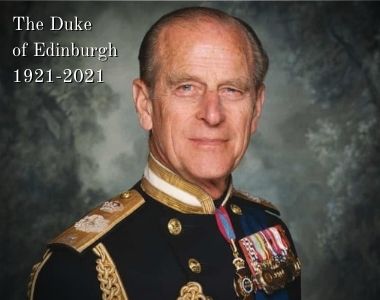OPERATION SNOWDROP
We read and hear about warmer winters. Brian Hawkins, a retired BBC producer, looks back over 60 years to a winter which started out as one of the coldest, and to his involvement in "Operation Snowdrop" whilst he was serving in the Royal Navy on his National Service engagement.
In early January 1955 I was returning from Christmas leave to my ship, HMS GLORY, a light fleet carrier, which had distinguished herself in the then recent Korean campaign. Berthed in the Royal Naval Dockyard Portsmouth, in the shadow of Nelson's flagship Victory, GLORY was preparing to join the reserve fleet.
However adverse weather conditions dictated a change of plan, Glory was to be deployed on a humanitarian mission and join "Operation Snowdrop". The weather conditions in Scotland had been severe. The country north of the Caledonian canal was virtually cut off from the rest of Scotland. Relief operations by the Royal Air Force had already started from Kinloss, and from Wick airport; 2 Royal Navy Whirlwind helicopters were dropping essential supplies to villages isolated by 10 foot snowdrifts.
Meanwhile we in GLORY sailed from Portsmouth for Port Glasgow, where we embarked supplies of food, animal fodder, aviation spirit and medical supplies. From Glasgow we steamed north, our destination Loch Eriboll, Scotland's most northerly sea loch. Here we set up a base from which Royal Navy helicopters could more easily drop supplies to the most northerly villages and crofts.
The voyage north was quite spectacular, sailing within sight of the Scottish mainland and the nearby islands. The snow covered landscapes to each side of us dazzling in the bright sunshine under a clear blue sky. We were enjoying the sort of environment that cruising holiday makers pay thousands to be part of.
Loch Eriboll, as well as being the most northerly,is certainly the biggest sea loch, being a deep finger of inland sea almost 10 miles in length. Anchored in it's mouth was to be GLORY’s home for the next few days. The depth of the snow on the land each side of us created a strange acoustic effect, an uncanny silence only to be disturbed by the low frequency throb of Whirlwind helicopters approaching our flight deck.
One particular day the Whirlwinds dropped over 3000lbs. of supplies, including cattle food and kerosene, to 34 villages ..................................................... this is an extract from Brian Hawkins' full article published next week in Warship World. To read more subscribe to Warship World, six magazines a year published by NavyBooks.

